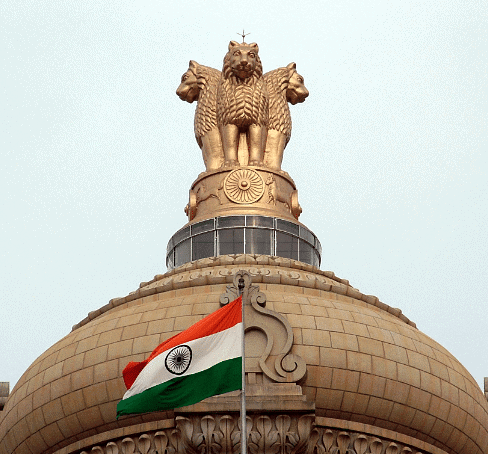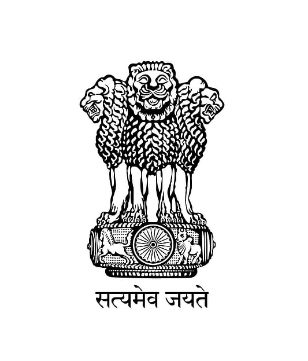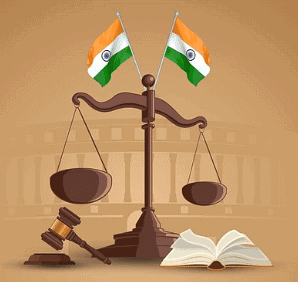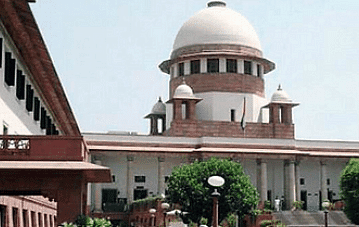Laxmikant Summary: Concept of the Constitution | Indian Polity for UPSC CSE PDF Download
| Table of contents |

|
| Meaning |

|
| Functions |

|
| Qualities |

|
| Classification |

|
| Constitutionalism and Constitutional Government |

|
Meaning
- The term 'constitution' originates from the Latin word "constituere," meaning 'to establish' or 'to set up.'
- In contemporary usage, a constitution refers to a set of principles defining the organization and operation of the government, as well as the relationship between the government and the people in terms of their rights and duties.
- Various terms are used to describe the constitution, such as the 'fundamental law of the land,' 'supreme law of the state,' 'basic law of the country,' 'instrument of the government,' 'rules of the state,' 'basic structure of the polity,' and 'grundnorm of the country.'

- Political scientists and constitutional experts offer different definitions:
- Gilchrist: The constitution consists of rules or laws determining the government's organization, the distribution of powers among its organs, and the general principles guiding power exercise.
- Gettell: The constitution includes fundamental principles shaping the state's form, covering the organization of the state, distribution of sovereign powers, scope and manner of governmental functions, and the government's relationship with the people.
- Wheare: The constitution describes the entire system of government in a country, forming a collection of rules that establish and regulate the government.
- Wade and Phillips: A constitution is a document with special legal sanctity, outlining the framework and principal functions of the government's organs, and declaring the governing principles for their operation.
Functions
- Declare and define the boundaries of the political community, making it clear and distinct.
- Specify and define the nature and authority of the political community, elucidating its essential characteristics.
- Express the identity and values of a national community, making it evident and meaningful.
- Articulate and define the rights and duties of citizens, making it explicit and legally binding.
- Establish and regulate the political institutions of the community, ensuring it function effectively.
- Divide or share power between different layers of government or sub-state communities, making it a balanced and organized system.
- Affirm the official religious identity of the state and demarcate relationships between sacred and secular authorities, making it explicit and recognized.
- Commit states to particular social, economic, or developmental goals, making it a binding and focused commitment.
Qualities
- Brevity: A good constitution should be concise, avoiding unnecessary provisions to prevent confusion in interpretation.
- Clarity: The provisions of a constitution should be expressed in clear terms, avoiding complicated language for better understanding.
- Definiteness: A constitution should provide definite meanings for its provisions to avoid ambiguity, which could increase judicial discretion in interpretation.
- Comprehensiveness: A well-constructed constitution should comprehensively outline the powers of the government, as well as the rights and duties of citizens, reducing the potential for controversies and litigations.

- Suitability: The constitution should reflect the needs and aspirations of the people, aligning with the historical, socio-cultural, economic, and political conditions of the nation.
- Stability: A constitution should contribute to political stability and resist easy tampering, strengthening citizens' obedience to it.
- Adaptability: A good constitution should be dynamic, not static, capable of adapting to changing situations and requirements, ensuring it remains a living document.
Classification
Evolved and Enacted
- Evolved Constitution: Outcome of a slow evolutionary process, contained in conventions, practices, principles, and judicial decisions. Example: British Constitution.
- Enacted Constitution: Deliberately made by a constituent assembly or constitutional council, provisions in the form of a document. Example: American and Indian Constitutions.
Written and Unwritten
- Written Constitution: Provisions incorporated in a book or document, consciously formulated by a constituent assembly or convention. Example: USA, Canada, Japan, France, India.
- Unwritten Constitution: Provisions not in a specific document, found in conventions, practices, principles, and judicial decisions. Example: UK, New Zealand, Israel.

Rigid and Flexible
- Rigid Constitution: Requires a special procedure for amendment, and distinguishes between constitutional and ordinary laws. Example: USA, Australia, Switzerland.
- Flexible Constitution: Amended like ordinary laws, no special procedure, no distinction between constitutional and ordinary laws. Example: UK, New Zealand. India is a synthesis of both.
Federal and Unitary
- Federal Constitution: Division of power between national and regional governments, operating independently in their jurisdictions. Example: USA, Switzerland, Australia, Canada.
- Unitary Constitution: Concentration of power in the national government, regional governments operate as subordinate agencies. Example: UK, France, Japan, China.
Procedural and Prescriptive
- Procedural Constitution: Defines legal and political structures, and sets legal limits of government power to protect democratic processes and human rights.
- Prescriptive Constitution: Assumes or imposes a broad consensus on societal goals for public authorities to strive for, in addition to describing how the government functions.
Constitutionalism and Constitutional Government
Meaning
While a country may possess a 'constitution,' it does not automatically imply the presence of 'constitutionalism.' For instance, a dictatorship where the dictator's decrees hold supreme authority can be said to have a 'constitution' but lacks 'constitutionalism.'
Constitutionalism acknowledges the necessity of a government with authority but emphasizes the importance of restricting those powers. Unbridled authority may lead to an authoritarian government that undermines the people's freedom. A country exhibits 'constitutionalism' only when its constitution imposes limitations on governmental power.

Constitutionalism envisions a political system governed by a constitution that mandates inherently limited government and the rule of law, rejecting arbitrary, despotic, authoritarian, or totalitarian rule. Constitutional government, in this context, is inseparable from democracy, and any form of arbitrary power, even if sanctioned by a constitutional document, contradicts the essence of constitutionalism.
Constitutionalism aspires to establish a political framework where governmental powers are restrained. It advocates for a limited and, consequently, a "civilized" government. The true rationale behind having a constitution lies in promoting a "limited government" and ensuring that those in power adhere to established laws and regulations.
Definition
A. Friedrich's Definition
- Constitutionalism is a system of effective restraints on governmental action.
- It involves a body of rules ensuring fair play, and holding the government accountable.
B. Roucek's Definition
- Constitutionalism signifies essentially limited government.
- It is the opposite of governance driven by the unrestrained will of rulers.
- Assumes limitations on government, regardless of the specific form of restraint.

C. Wheare's Definition
- Constitutional government goes beyond mere adherence to a constitution's terms.
- It implies rule-based governance, contrasting with arbitrary rule.
- Involves limitations imposed by the constitution, not solely by the desires and capacities of those in power.
D. Thibaut's Perspective
- Constitutional government is classified by rulers being subject to a body of rules and principles.
- These rules and principles limit the exercise of rulers' power.
- Constitutional government is the antithesis of arbitrary rule.
Elements
Louis Henkin, a constitutional scholar, outlined eight elements or principles of constitutionalism, which are detailed below:
- Popular Sovereignty
- Rule of Law
- Democratic Government (Responsible and Accountable Government)
- Separation of Powers (Checks and Balances)
- Independent Judiciary
- Civilian Control of the Military
- Police Governed by Law and Judicial Control
- Respect for Individual Rights
|
142 videos|780 docs|202 tests
|
FAQs on Laxmikant Summary: Concept of the Constitution - Indian Polity for UPSC CSE
| 1. What is the concept of Constitutionalism? |  |
| 2. What is the difference between Constitutionalism and Constitutional Government? |  |
| 3. What are some key functions of Constitutionalism in a democracy? |  |
| 4. What are some qualities of a constitutional government? |  |
| 5. How can Constitutionalism be classified in terms of its impact on governance? |  |
















